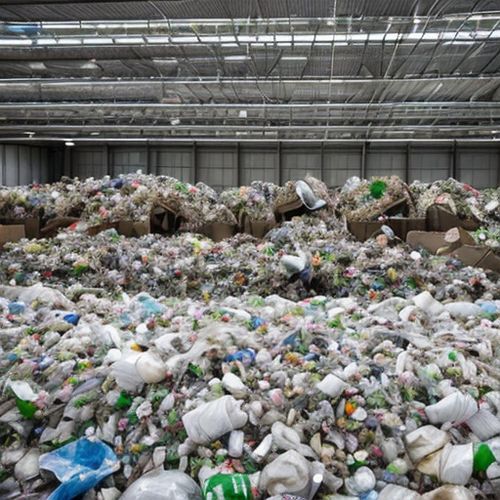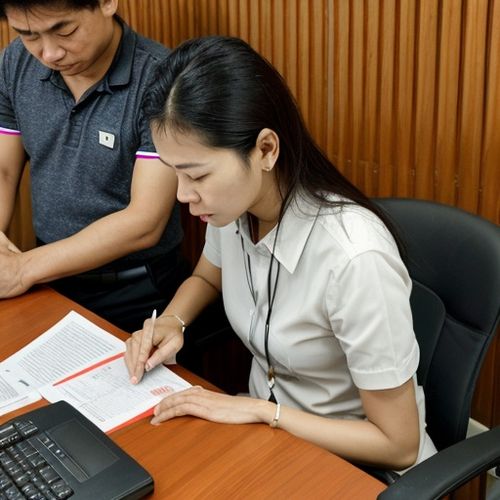Germany has long been regarded as a global leader in waste management and recycling, with its meticulous approach to sorting household waste setting a benchmark for other nations. The country’s commitment to sustainability is deeply ingrained in its culture, and the rigorous classification of waste plays a pivotal role in minimizing environmental impact. From paper and plastics to organic waste and glass, every category is handled with precision, ensuring that as little as possible ends up in landfills.
The foundation of Germany’s waste separation system lies in its color-coded bins, each designated for a specific type of waste. Households are expected to sort their trash into black, blue, yellow, and brown bins, with additional containers for glass and hazardous materials. The black bin is reserved for residual waste—items that cannot be recycled—while the blue bin collects paper and cardboard. The yellow bin, or the "Gelbe Sack," is designated for packaging materials such as plastics and metals, and the brown bin is for organic waste, which is later composted or converted into biogas.
What sets Germany apart is not just the infrastructure but the societal commitment to adhering to these rules. Children are taught the importance of waste separation from an early age, and adults face fines for improper disposal. This collective responsibility ensures high recycling rates, with over 65% of municipal waste being recycled or composted. The system’s success is also attributed to the "Green Dot" initiative, where manufacturers contribute to the cost of recycling their packaging, incentivizing them to use eco-friendly materials.
Glass recycling in Germany is another area where the country excels. Unlike many nations where glass is tossed into a single bin, Germans separate it by color—white, green, and brown—into dedicated containers. This meticulous sorting ensures that the glass can be melted down and reused without contamination, significantly reducing the energy required to produce new glass products. Public glass collection points are ubiquitous, making it convenient for citizens to dispose of bottles and jars responsibly.
Organic waste, too, is treated with great care. The brown bins in households collect food scraps, garden waste, and other biodegradable materials, which are then processed into compost or used in energy production. This not only reduces methane emissions from landfills but also enriches soil quality, supporting sustainable agriculture. Many municipalities even provide free compost to residents, closing the loop in the waste management cycle.
Despite its successes, Germany’s waste management system is not without challenges. Contamination of recycling streams remains an issue, as even a small amount of non-recyclable material can disrupt the process. Additionally, the sheer volume of packaging waste, particularly from online shopping, has prompted calls for stricter regulations on producers. Critics argue that while the system is efficient, it places too much burden on consumers to sort their waste correctly.
Looking ahead, Germany continues to innovate in waste management. Recent initiatives include expanding the deposit system for single-use bottles and exploring advanced sorting technologies to improve efficiency. The country’s experience serves as a valuable lesson for others striving to reduce their environmental footprint. By combining strict policies, public education, and corporate accountability, Germany demonstrates that effective waste management is not just possible but essential for a sustainable future.
The German model proves that recycling is more than just a policy—it’s a way of life. While no system is perfect, the country’s dedication to minimizing waste and maximizing reuse sets a standard worth emulating. As global awareness of environmental issues grows, Germany’s approach offers a blueprint for how societies can transform their relationship with waste, turning what was once trash into valuable resources.

By Victoria Gonzalez/Apr 14, 2025

By Samuel Cooper/Apr 14, 2025

By William Miller/Apr 14, 2025

By Emma Thompson/Apr 14, 2025

By Lily Simpson/Apr 14, 2025

By Emily Johnson/Apr 14, 2025

By George Bailey/Apr 14, 2025

By Sarah Davis/Apr 14, 2025

By Grace Cox/Apr 14, 2025

By Natalie Campbell/Apr 14, 2025

By Christopher Harris/Apr 14, 2025

By Rebecca Stewart/Apr 14, 2025

By Joshua Howard/Apr 14, 2025

By Jessica Lee/Apr 14, 2025

By Eric Ward/Apr 14, 2025

By Lily Simpson/Apr 14, 2025

By William Miller/Apr 14, 2025

By Olivia Reed/Apr 14, 2025

By William Miller/Apr 14, 2025